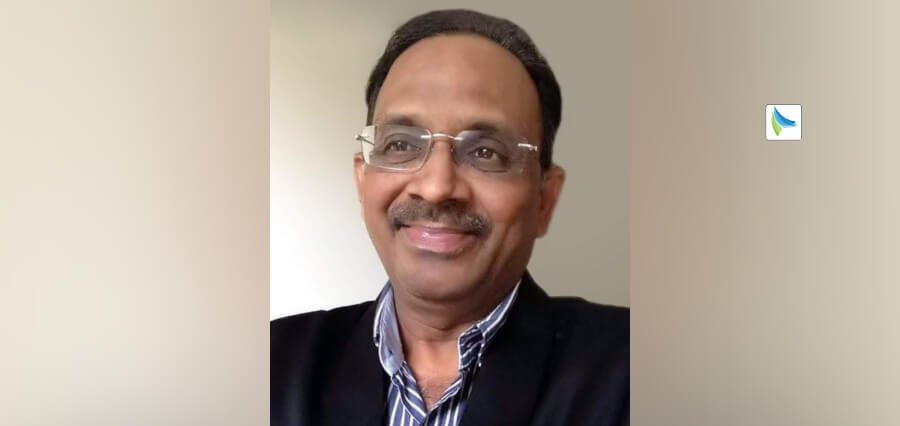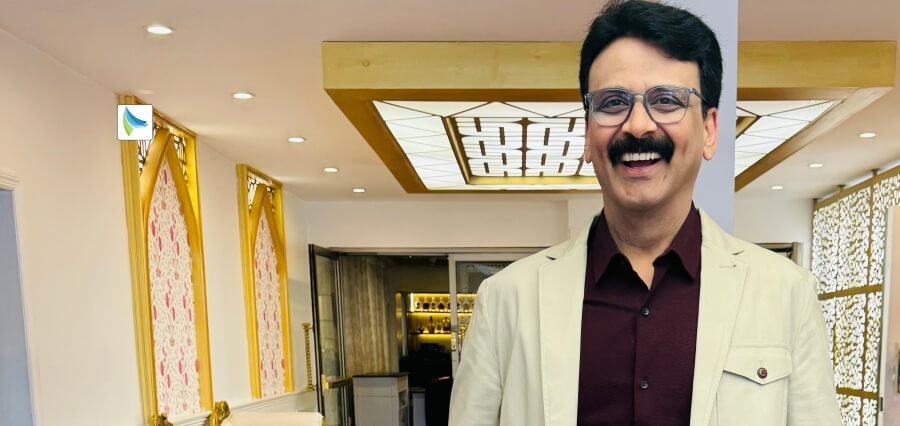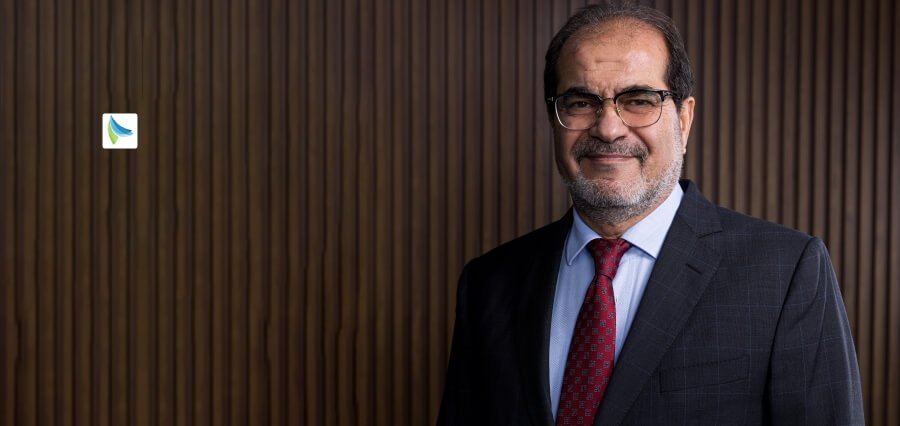Dr. Christian Schmeichel, SVP and Chief Future of Work Officer at SAP is a transformative force in the Global HR landscape. With a passion that combines people and technology,
Christian has created a space where traditional HR transcends its boundaries, where business focus meets empathy and where advanced People Analytics and AI-driven technologies redefine the workforce dynamics of the next world of work.
With Christian being a thought leader renowned for this vision of reshaping global HR organizations, his advocacy for ‘Rethinking HR’ resonates powerfully, emphasizing agile leadership, diversity, and talent development as the bedrock of any high-performing organization.
Along these lines, SAP’s approach to the Future of Work seems to transform ordinary into extraordinary and makes SAP’s Future of Work agenda more than just a plan but a vibrant reality!
Laying the Foundation
In the world of global HR, Christian Schmeichel is not an unknown. With a career spanning continents, his journey has endowed him with a profound understanding of the intricate tapestry of human resources worldwide. “Having worked and lived in Asia, Europe and the US, I’ve gained invaluable context and insights into the developments of global HR,” he reflects.
Christian’s career journey actually started in Corporate Finance and Strategy Consulting before moving into the arena of HR. When joining SAP in 2005, his first role included the coordination of SAP’s global Labs HR activities. When climbing up the career ladder over the years, his tenure as the Head of HR for SAP’s subsidiary in Tokyo, Japan, was particularly impactful. Amidst the aftermath of natural disasters, he witnessed Japan’s commitment to its people’s safety and well-being, leaving an indelible mark on his approach. “There was a fundamental focus on health and well-being, and that has stuck with me,” he shares.
His diverse leadership roles within SAP, from head of HR strategy to COO for global HR and HR Lead for multiple board areas, have been defined by a steadfast commitment to creating unparalleled employee experiences. “Through it all, I’ve made sure we’ve kept a sharp focus on creating best-in-class employee experiences,” Christian affirms.
Since 2021, when he got appointed as SVP and Chief Future of Work Officer at SAP, he and his organization spearhead the Business Software Group’s Future of Work agenda for its global and diverse workforce of more than 100,000 employees worldwide.
Christian Schmeichel’s expertise extends beyond borders— with a proven track record of successfully managing global HR transformation and the future of work. As a global citizen, he currently resides with his family close to SAP’s headquarter in Heidelberg, Germany, incorporating his international experiences into SAP’s innovative HR landscape.
His diverse leadership roles within SAP, from head of HR strategy to COO for global HR and HR Lead for multiple board areas, have been defined by a steadfast commitment to creating unparalleled employee experiences. “Through it all, I’ve made sure we’ve kept a sharp focus on creating best-in-class employee experiences,” Christian affirms.
Since 2021, when he got appointed as SVP and Chief Future of Work Officer at SAP, he and his organization spearhead the Business Software Group’s Future of Work agenda for its global and diverse workforce of more than 100,000 employees worldwide.
Christian Schmeichel’s expertise extends beyond borders— with a proven track record of successfully managing global HR transformation and the future of work. As a global citizen, he currently resides with his family close to SAP’s headquarter in Heidelberg, Germany, incorporating his international experiences into SAP’s innovative HR landscape.
A Unified Vision
Acknowledging that the future of work is green and powered by AI, SAP’s commitment to sustainability is resolute, underpinned by a promise of “zero emissions, zero waste and zero inequality,” as Christian emphasizes. At the core of this mission is the belief that social progress is a collective human responsibility. This ethos fuels the deep appreciation for the diverse experiences each individual brings to the workplace, transcending cultural and geographical boundaries.
In the mosaic of diversity, unity hinges on inclusivity. “You can’t align on a unified vision unless strides have been taken to make the vision inclusive,” Christian underscores.
SAP’s dedication to shaping the Future of Work reflects this inclusivity. Diversity and Inclusion (D&I) is just the beginning—the vision encompasses a global perspective.
On the Global level, SAP is resolute in upholding human rights, fostering health and well-being and embracing corporate social responsibility, all in synergy with their Health, Safety & Wellbeing as well as D&I manifesto. “All these pillars are helping us move toward a Future of Work that is globally inclusive and equal,” Christian affirms.
SAP’s journey toward an inclusive and equitable future is evidence of its commitment to a better world, driven by innovation, diversity and a profound sense of responsibility.
Designing the Future Workplace
Christian points out, “The world around us is changing at a breakneck speed while at the same time, the competition for talent is getting more and more intense.” In the heart of SAP’s global operations, Christian and his team are redefining how we perceive work and opening doors to a new era. Appointed as the Chief Future of Work Officer in 2021, Christian delves deep into the essence of strategic management. “If you want to manage all that’s going on, you need to do it holistically,” he emphasizes, encapsulating the very core of his approach.
At the helm of SAP’s Future of Work organization, which was established in 2021, Christian coordinates a multifaceted team of experts, leveraging their diverse skills and knowledge to achieve cohesive and innovative outcomes. Together, they navigate the intricate landscape of SAP’s global workforce. “We have the joint mission to design and orchestrate SAP’s holistic future of work agenda,” Christian explains, his passion evident.
For SAP, the future of work is a multi-dimensional puzzle. Christian and his team focus on various key dimensions.
First, they gaze into the future, envisioning the composition of the workforce in the next 5 to 10 years. “Which skills will be required and where? How much AI will be incorporated into our daily work?” Christian ponders, setting the objectives for the strategic journey ahead. The second dimension is about crafting an environment where this futuristic workforce can thrive, finding motivation and engagement in their tasks. It’s about elevating HR practices while embracing new, flexible and healthy work paradigms.
“It’s a mix of business elements and strategic HR topics,” Christian notes, highlighting the intricate balance between innovation and tradition. Last but by no means least, the Future of Work will also require an evolution of the HR departments itself.
In the wake of the pandemic, the landscape of work has transformed. Talent seeks not just jobs but meaningful engagements that honor their priorities. Agility and resilience have become the watchwords and SAP is at the forefront of this shift. “Talents are looking for new, flexible, and structured hybrid ways to work,” Christian observes, underlining the need for adaptability in the face of changing expectations. “With generative AI, the work landscape is transforming again. AI will increasingly support employees in their daily works in the one or other way. That will affect expectations on both sides, too.”
Within its learning culture, SAP provides diverse opportunities for skill development:
- Dedicated learning programs: These empower employees to enhance both hard and soft skills, a practice known as ‘upskilling.’
- Versatile support mechanisms: This includes traditional methods like webinars, peer-to-peer learning encouraging knowledge exchange and experiential learning through real-world application, colloquially known as ‘on the job.’
Regarding the future skills landscape of HR itself, a paradigm shift is imminent:
- Digital Proficiency: HR professionals must harness digital capabilities.
- Data Literacy: Emphasizing data-driven decision-making.
- Agile Mindset: Adopting flexibility and adaptability.
- Experience Management: Focusing on delivering exceptional employee experiences. Christian’s vision emphasizes thriving amidst change, ensuring SAP’s workforce is not only equipped with technical skills but also possesses the right mindset to innovate and contribute effectively.
Accelerating Flexibility in a Productive Way
The pandemic served as an accelerator for trends and new ways of working, most notably with the heyday of flexible and remote work models. SAP introduced their own hybrid working model ‘Pledge to Flex’ early on during the pandemic aiming to keep people safe based on a commitment to flexible and trust-based working for the global workforce of 100,000 people.
In a rapidly evolving landscape, SAP acknowledges the shifting tides of work dynamics and the enduring importance of flexibility. “We realize that especially over the last three years, ways of working and personal preferences have been changing significantly,” notes Christian, emphasizing their commitment to adapt to the evolving needs of their workforce.
Amid this transformation, the physical office holds a unique place in fostering personal connections at SAP. “The office remains our number one place to stay connected and feature interactions on a personal level,” Christian highlights. At the same time, “Given people’s roles, tasks and local regulations, one size certainly does not fit all, especially if you have such a global and diverse workforce as SAP does,” Christian underscores.
In response, SAP did launch a dedicated ‘I’m In’ initiative in 2023, an ideal example of its dedication to strengthening connections and promoting in-person engagements. The combination of splitting time between 2-3 days of in-person office work and remote has emerged as a best practice for their employees to stay connected and run at their personal best. This echoes the sentiments of an organization that values both the present and the future of work.
In HR, We Trust
Constantly vigilant, Christian delves into market dynamics, vendor activities and emerging trends. “We can’t predict the future, but by asking the right questions and investing in scenario planning, we gain a good grasp of what may happen,” he notes. SAP’s approach is proactive, focusing on discerning trends to anticipate shifts in the workforce landscape.
“We’re looking for trends to predict how our workforce will change,” Christian emphasizes. Understanding the evolution in practices, processes and environments provides a roadmap for necessary workforce adjustments. Yet, Christian believes in more than just prediction—he advocates shaping the future actively.
Fueling the Future
Shaping the Future of Work is not a nice to have, but rather a business imperative which is highly motivating. “Having a hands-on role in shaping the Future of Work at SAP and for our customers and partners is something I’m deeply passionate about,” Christian lines out. His enthusiasm finds fuel in having a true business impact and the collaboration with his global team, sharing a vision that turns work into something truly enjoyable.
For Christian, “It’s a journey of re-imagining and co-shaping the future of how people will live and work which is quite inspiring,” he articulates.
Changing the Game
A solid workforce plan and sound people practices are key to success. When carefully thought through and planned around rich data and predictions, these aspects give organizations a workable agenda for growing in a rapidly changing landscape.
Every leader knows that change management is critical for balancing business and employee priorities, getting good buy-in to game-changing initiatives—like the adoption of generative AI and keeping morale high along the way. But how does one manage change when they can’t see it coming? This is where workforce planning and the need for timely analytics are widening the divide between the organizations that have been quick to evolve and those that have lagged.
Blending the best of different Worlds
In the intricate web of future work dynamics, SAP operates at the crossroads of collaboration. “SAP manages the future of work cross-functionally, where HR works in close collaboration with the business and other corporate functions,” emphasizes Christian. In this era of transformative technology and generative AI, the HR landscape is shifting towards a data-driven paradigm. “HR needs to be utilizing data at every level,” Christian points out.
This evolution demands a profound understanding of digital systems. “This doesn’t mean an HR person will need to code software, but they should know how to use the systems to support the business as best as possible,” Christian Schmeichel explains.
For example, Generative AI use cases within SAP’s own SuccessFactors solution will help people leaders and recruiters create job descriptions and help employees find personalized learning recommendations to fuel their career development and growth.
The focus lies in deciphering data to envision the future—understanding how technology will help handle repetitive tasks, what skills will be vital and how every employee can evolve hand-in-hand with the organization. SAP’s approach isn’t just about adapting to change—it’s about embracing data-driven insights to shape a future where every member of the workforce thrives.
Burning Bright Without Burning Out
In the midst of global challenges, SAP stands steadfast, recognizing the pivotal role of mental and physical well-being in the workplace. “The mental and physical fitness of every person is a key part of workplace productivity,” notes Christian. SAP invests profoundly in its people, championing a culture of health through initiatives like “Are you OK?” —a mental health program and around-the-clock Employee Assistance Program, offering support and counselling.
Furthermore, SAP’s HR function serves as a trailblazer in Human Capital Management (HXM). “We’re in a sweet spot where we can leverage our own technologies,” Christian states proudly. This unique position allows SAP to receive real-time feedback from their employees, shaping solutions that truly prioritize individuals at the core of business operations.
Where Passion Meets Productivity
SAP remains vigilant in understanding the pulse of the global workforce. “We measure employee engagement and satisfaction across functional areas and geographies,” affirms Christian. Their approach involves a meticulous continuous listening strategy, amalgamating experience data with operational statistics to gain a holistic perspective.
This method provides a 360-degree view of the organization, enabling proactive HR strategies. “Our dashboards provide access to the relevant data for various target groups,” Christian emphasizes. Central to their success is the reliance on a single source of truth for all data. This high data quality not only ensures accurate reporting but also fuels advanced predictive analytics and scenario modeling, securing SAP’s future proactively.
Small Step, Giant Leap
“The pandemic has transformed work dynamics profoundly and so is Generative AI,” asserts Christian and SAP’s approach for the future of work stands as an inspiration for change.
To successfully architect the future of work in the post-pandemic era, one will need to take full advantage of the opportunities and disruptive power of digitalization.
Amongst others, for HR this means employing state-of-the-art technology and digital-first HR services to allow for scalability and further efficiency across leading-edge work experiences. At the same time, it is more important than ever for HR to retain the “human factor” at work and empower people to thrive.
“With the world around us changing at breakneck speed, I truly see this as a once-in-a-generation opportunity for HR to shape the future of work,” Christian Schmeichel summarizes. “And I couldn’t be more excited to be part of it, leaving a legacy of crafting cutting-edge working environments.”



















